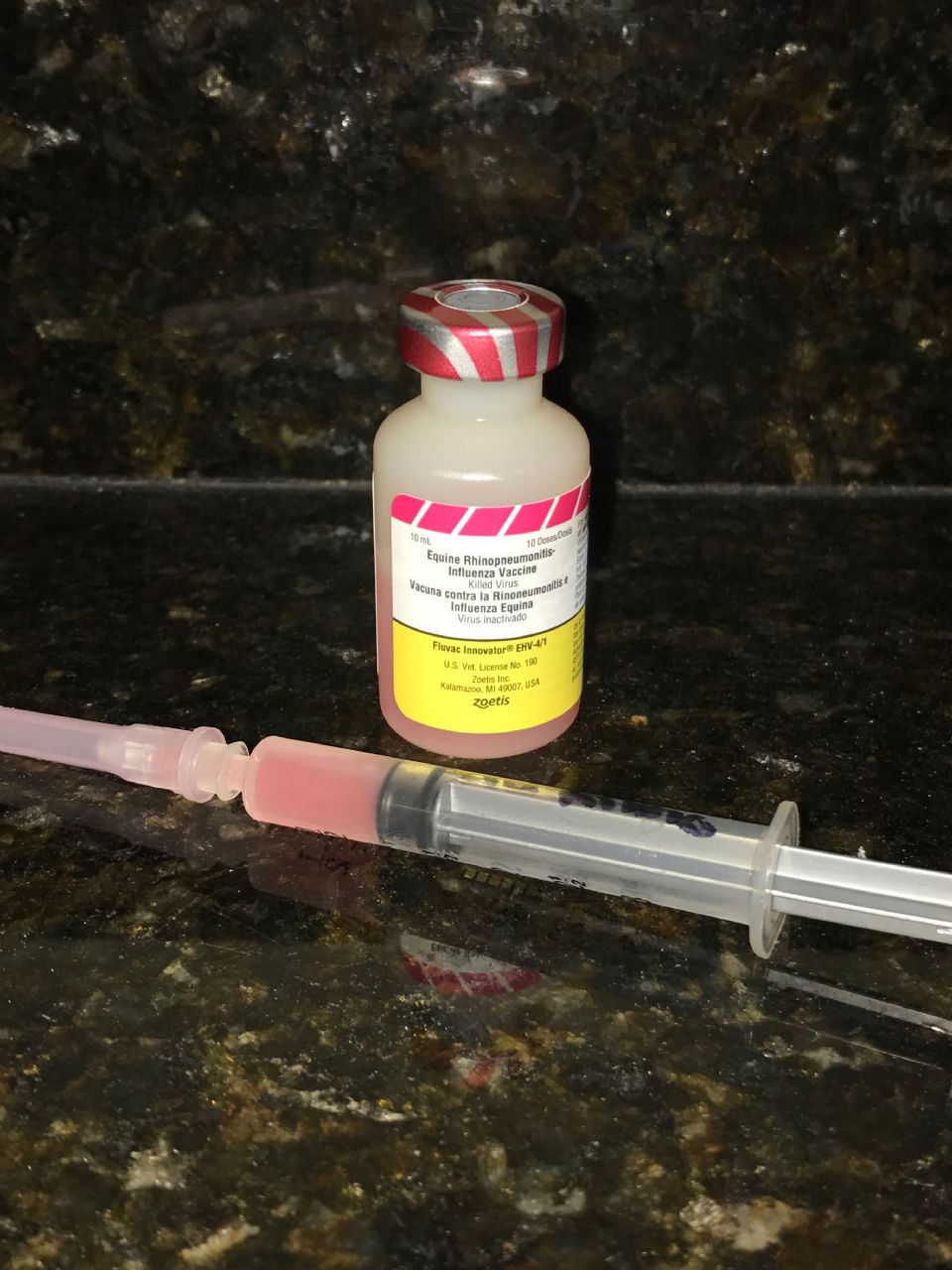Palm Beach Equine Leads the Way in Internal Medicine Services
Dr. Peter Heidmann talks respiratory disease in horses
January 23, 2018 - Wellington, FL
Photo by Erin Gilmore
Photo courtesy of PBEC
Photo courtesy of PBEC
Palm Beach Equine Clinic (PBEC), based in Wellington, FL, is one of the few veterinary clinics in the country to offer their clients the talents of board-certified specialists in nearly every branch of equine veterinary medicine. One such specialist is Dr. Peter Heidmann, a graduate of Tufts University School of Veterinary Medicine who joined the PBEC three years ago, and splits his time between Wellington, FL, and his own Montana Equine Clinic & Surgical Center practice based in Bozeman, MT.
Dr. Heidmann, DVM, MPH, is a board-certified specialist in internal medicine and sees these types of cases at PBEC, which recently underwent significant facility upgrades, including the addition of a dedicated internal medicine and infectious disease center.
To define internal medicine, Dr. Heidmann, noted, “What you’ll see on the American College of Veterinary Internal Medicine (ACVIM) website is an emphasis on organ systems and organ system problems – respiratory disease, gastrointestinal disease, and neurologic disease being three of the most prevalent.
“What it really entails is a way of analyzing problems specific to the organ systems,” continued Dr. Heidmann, who is based at PBEC through April to help with internal medicine cases that may arise during the height of dressage, show jumping, and polo seasons in South Florida. “It can be all over the map, and that’s part of what makes the specialty so fun and interesting.”
The most common internal medicine cases can be split into three categories: gastrointestinal (GI) problems, neurological system issues, and respiratory diseases.
Respiratory disease in horses
As common as a cold for a human or acute in nature, Dr. Heidmann further breaks down the different kinds of common respiratory disease in horses into three categories.
Equine Asthma “Heaves”
The majority of the horses competing in Florida during the winter season are impeccably cared for, which reduces the occurrences of chronic respiratory conditions or significant lung conditions. As a result, what is most commonly seen is equine asthma, or heaves.
“Very similar to asthma in humans, the small airway can constrict with inflammation and restrict air flow as a reaction to things in the environment,” said Dr. Heidmann. “As a result, you can have a top athlete one minute and an hour or a day or a week later have real exercise limitations. In South Florida, the moist air, dander, dust, and pollen are things that horses can react to, making heaves by far one of the most common respiratory problems in horses, but also one of the most treatable.”
According to Dr. Heidmann, equine asthma is treatable through a combination of nebulized medications, oral medications, or injections. These methods serve to quiet the inflammatory response much like how an inhaler helps relieve a human with asthma problems.
Acute Infections
Viral cases of respiratory disease include flu and Rhinopneumonitis, or rhino, caused by one of two types of equine herpesviruses; EHV-1 and EHV-4. While vaccinations are the easiest method to prevent cases of flu and rhino, these problems are a big concern because they spread so readily. While proper biosecurity protocols go hand in hand with vaccinations, isolation is key when it comes to infectious diseases affecting the respiratory system, according to Dr. Heidmann.
“At PBEC, our new isolation stalls completely enclose horses in their own environment with individually isolated and filtered air flow systems so that germs cannot reach other horses,” he said. “But, more importantly is the personnel. The staff that I work with at PBEC is highly trained with a lot of experience. They make transmission a non-factor between patients and also between the animals and those treating them.”
Shipping Fever
The most severe kind of respiratory disease found in horses is shipping fever, which is an infection that takes advantage of a horse’s stress while traveling.
“The sickest of these horses can’t be saved by any amount of dollars or expertise, so those are the ones we really worry about,” said Dr. Heidmann. “Whether a horse gets sick in transit or inadvertently aspirates food into their trachea, the result can be a deep bacterial infection.”
While treatable, these infections require two to three or more months on antibiotics that transition from injectable to oral, according to Dr. Heidmann.
How PBEC can help
On top of secure isolation and individual air flow systems in their new internal medicine facilities, PBEC also constructed areas for each stall where medications are prepared, equipment is stored, and dirty bedding is handled. To further mitigate risk, veterinarians, technicians, and staff take every available precaution, including foot baths before entering the stalls, Tyvek suits, gowns, and masks, providing multiple layers of protection. In some cases, a doctor/technician/intern team is assigned to a patient and won’t touch another horse for the duration of the treatment.
Dr. Heidmann refers to the facilities and his work at PBEC as a luxury, saying, “I’ve managed many cases in various facilities going all the way back through internship, fellowship, and residency, but this is as nice as any place I have ever worked. It makes the risk to the horses so much lower, but also removes the anxiety for myself because I’m able to look a client in the eye and tell them that there is no risk. I don’t have a concern about disease spreading from one patient to another because at PBEC we have the tools that we need.”
Call Palm Beach Equine Clinic today at 561-793-1599 to learn more about their internal medicine capabilities.
Want to know more about Dr. Heidmann? Click here!





